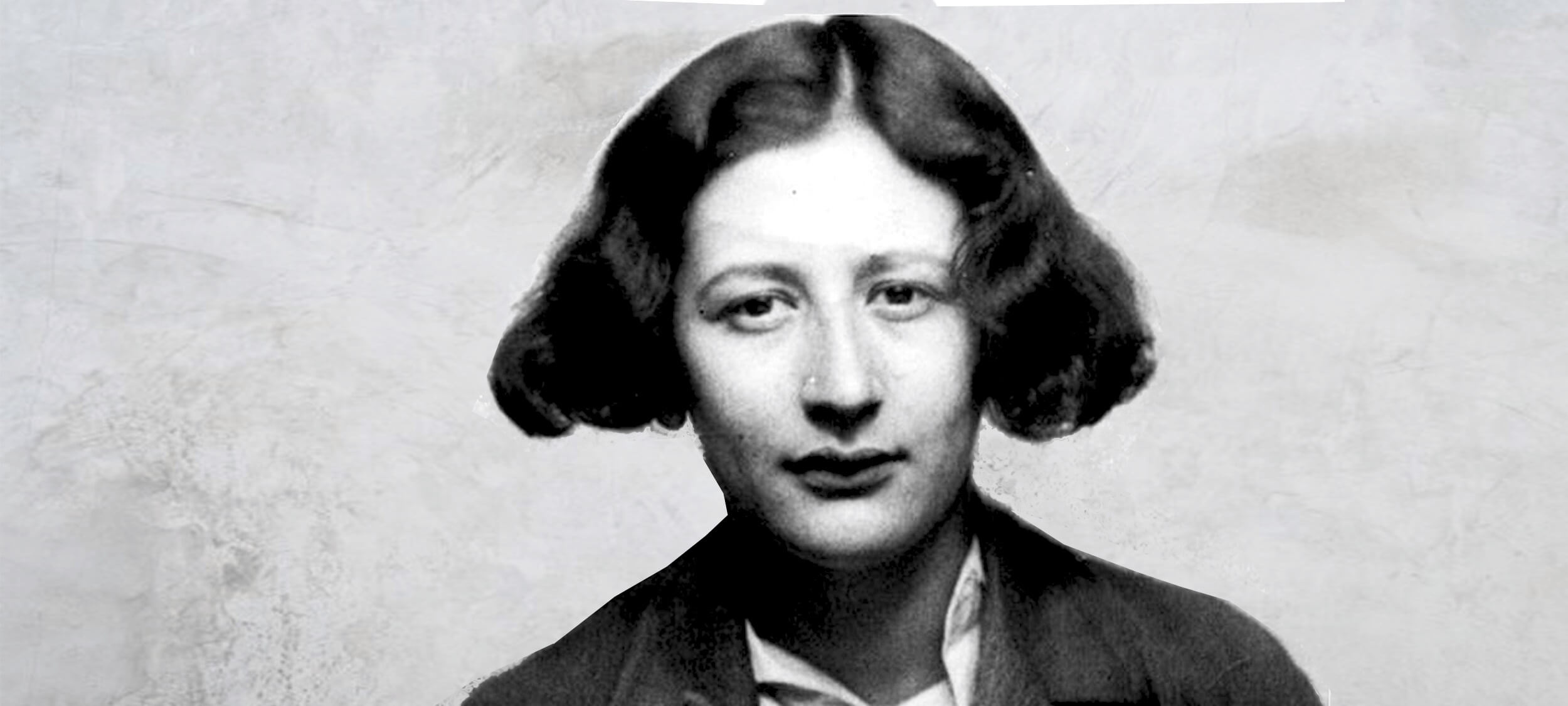Waiting is a theme throughout the prophets and the psalms. Waiting upon God seems to be the general posture of the prophets. It is the posture of those who experience the absence of God. Those who long for justice. Like Habbakuk.
These are the words of the prophet Habbakuk:
O Lord, how long shall I cry for help,
and you will not listen?
Or cry to you Violence!
yet you will not save?
Why do you make me see wrong-doing
and look at trouble?
Destruction and violence are before me;
strife and contention arise.
So the law becomes slack and justice never prevails.
The wicked surround the righteous;
therefore judgment comes forth perverted.
I will stand at my watchpost,
and station myself on the rampart;
I will keep watch to see what he will say to me,
and what he will answer concerning my complaint.
We don’t know much about Habakkuk…we only know what we read in the Scriptures. But his words remind me of a modern prophet–someone who waited upon God for justice: Simone Weil. She is on my short list of the most under-appreciated, yet amazingly prophetic voices, of the past 100 years.
Simone Weil says: “Waiting patiently in expectation is the foundation of the spiritual life.”
In one way or another, every prophet and mystic tends to agree. God is experienced in the waiting.
We tend to think that waiting sucks. That it is impotent. But in order to understand why Simone centered her spirituality in waiting, it is good to know more about Weil and her life.
SImone Weil was born over 100 years ago, on February 3, 1909. She died 34 years later.
She was a brilliant and intense person, even at a young age. When she was 5 she refused to eat sugar because the french soldiers at the front during WWI had none. She would continue to fast in solidarity at various times throughout her life.
By her teens, she was a polyglot and began teaching languages and philosophy. During that time, she was involved in the workers movement, writing tracts, marching in demonstrations, and advocating for workers.
When she was 25, she took a job doing heavy industrial labor so that she could be in solidarity with the struggling workers in post-WWI France. She was sickly and struggled with strenuous labor, but she was dedicated.
When she was 27, she moved to Spain to join the anarchists in the Spanish Civil War. After an accident where she was badly burned by boiling oil, she was sent to Portugal to recover. It was at this time she had the first of several profound mystical experiences. In one experience, Christ revealed himself to her. However, despite her mystical encounters with Jesus, she refused to be baptized. Her refusal flowed out of “love for those things which exist outside of Christianity.” She is, therefore, considered by many to be the patron saint of outsiders.
During WWII, she fled to the United States with her parents, since they were Jews. She was 33. Not wanting to miss the action, she traveled to London to support the work of the French Resistance. During this time, she refused to eat more than the official ration of occupied France. Malnutrition and overwork led to her collapse. While in the hospital, she was diagnosed with TB. She died shortly thereafter.
After her death, her writings were published. Revealing her to be one of the most brilliant minds of the 20th century.
Her mysticism grew out of her experience of suffering. Not only as a Jew living in the midst of a difficult time, or as one who worked and fought in solidarity with the resistance, but also as one who was racked with migraines her entire life.
Her understanding of “waiting on God” isn’t exactly passive, since she was one who engaged life more fully in 34 short years of life than many who live twice as long.
No, for Weil, waiting upon God is to give one’s full attention to God, even if God is absent. It comes from recognizing, with full humility, that we are finite. That we are limited. And by recognizing that our world is scarred and broken. It comes from a place of honesty and a recognition of our own weakness.
Weil writes:
…It is not for [us] to seek, or even to believe in God. We have only to refuse to believe in everything that is not God. This refusal does not presuppose belief. It is enough to recognize, what is obvious to any mind, that all the goods of this world, past, present, or future, real or imaginary, are finite and limited and radically incapable of satisfying the desire which burns perpetually with in us for an infinite and perfect good… It is not a matter of self-questioning or searching. We have only to persist in his refusal, and one day or another God will come to [us].
This is an anarchic waiting…a waiting that persistently struggles against all that is not-God while anticipating the coming of God. May we, like the prophets, wait for God.

Leave a Reply
You must be logged in to post a comment.